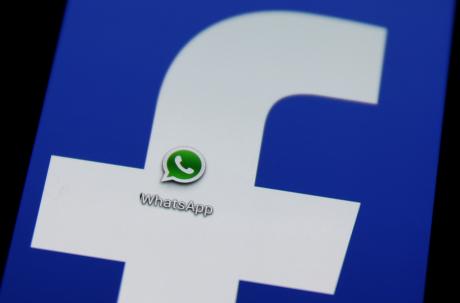(Reuters) – Facebook Inc’s purchase of fast-growing mobile-messaging startup WhatsApp for $19 billion stunned the markets but analysts said the deal made strategic sense as it will solidify the social network’s position as a leader in mobile.

Facebook shares fell as much as 3 percent in early trading, erasing $5.2 billion from the company’s market value.
At least two brokerages downgraded their recommendations on Facebook to hold but the overwhelming majority of analysts remain positive on the stock.
Facebook is paying more than double its annual revenue for a chat program that has little revenue. The purchase price is slightly more than the market value of Sony Corp.
But analysts pointed out that WhatsApp currently has over 450 million users and boasts a higher level of engagement than Facebook.
Facebook is the leading global social-sharing utility. Now, it has a significant opportunity to be the leading global communications utility, RBC Capital Markets said in a note.
WhatsApp is much stronger than Facebook Messenger in Europe, Latin America, Africa and Australia and has attracted lots of young users at a time when fears have grown that young people are tuning out of Facebook.
Analysts said the price tag for WhatsApp, founded in 2009 by former Yahoo Inc employees Jan Koum and Brian Acton, seemed reasonable from the point of view of value per user.
Facebook is paying $42 per user, compared with a market value per user of $170 for Facebook and $212 for Twitter, Deutsche Bank’s Ross Sandler said in a note.
WhatsApp’s 450 million users are well short of Facebook’s 1.2 billion but WhatsApp users are more active. On any given day, 70 percent of WhatsApp users are active, compared with 62 percent for Facebook.
Facebook continues to demonstrate savvy-ness beyond its years as it pivots its business model, footprint and strategy to mobile, Sandler said.
Of the 44 analysts who cover Facebook, 37 have a buy or a strong buy rating on the stock, according to Thomson Reuters data. None has a sell rating.
Analysts have commended Facebook’s ability to make money from its mobile app even as investors fret over concerns of youngsters ditching the network. With the WhatsApp deal, analysts want to see how Facebook will earn money from the chat program’s huge number of users.
While we don’t expect messaging to be a meaningful near-term or even long-term revenue driver, the real value could be the evolution of the platform to incorporate new functionality such as payments, app distribution, social features …, Macquarie Equities Research analyst Ben Schachter said.
EMERGING MARKETS PUSH
Facebook has fallen behind in mobile phone messaging apps in emerging markets, where many are accessing the internet on fast-growing 3G mobile networks for the first time on smartphones.
Asian rivals such as Tencent Holdings Ltd’s WeChat, Naver Corp’s Line and Rakuten Inc’s Viber are well ahead of Facebook messenger across much of Asia.
Facebook has been buying apps with large numbers of young users as part of CEO Mark Zuckerberg’s strategy of helping users share any kind of content with anyone.
The company’s $1 billion deal to buy photo-sharing application Instagram in 2012 and its recent $3 billion failed overture to buy SnapChat – used by teenagers to send texts and photos that disappear after a few seconds – followed unsuccessful attempts to develop rival apps.
Large scale networks like WhatsApp are rare and provide (a) significant monetization opportunity (i.e. YouTube) justifying valuation over time, SunTrust Robinson Humphrey’s Robert Peck said in a note.
Analysts estimate WhatsApp users share 19 billion messages, 600 million photos, 200 million voice messages, and 100 million video messages per day. They expect total users to reach 1 billion by the end of 2015.
Some analysts, however, said Facebook was paying the high price to keep WhatsApp from being snapped up by a rival.
Facebook shares would have been pressured by more than single-digit percentages in after-market trading if Google Inc had purchased WhatsApp instead, Stifel analyst Jordan Rohan said in a note.
Pivotal Research’s Brian Wieser, who downgraded his rating on Facebook shares to hold from buy, said he expects Facebook shares to face pressure in the near-term as investors come to terms with the risk of future acquisitions.
Facebook shares were trading at $65.95 in premarket trading.
(Editing by Saumyadeb Chakrabarty)





